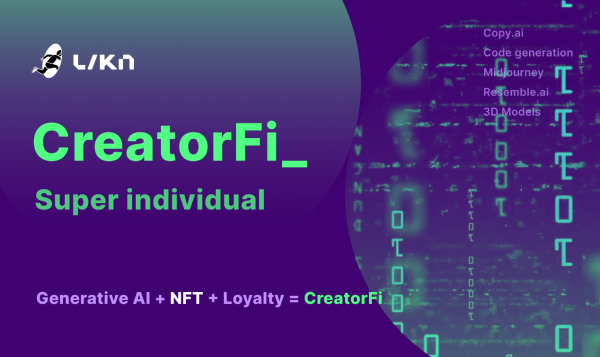Inside the Fight Over ‘Pulp Fiction’ NFT

January was a heady time for the Secret Network. The two-year-old platform had launched a cryptocurrency – SCRT – and was preparing to make a big splash in Hollywood. In collaboration with Quentin Tarantino, the network prepared to auction an NFT based on the script for “Pulp Fiction.”
In the network’s Telegram chat room, Guy Zyskind posted the bet. Known as “The Big Guy” in chat, Zyskind is the CEO of SCRT Labs, the development team behind the network. He explained that a successful sale would be essential to convince celebrities and brands that the network could generate demand.
He encouraged Anons — the 300-plus people in the chat — to bid as a group, saying it would create “a lot of PR for Secret” and that more auctions would follow. Tor Bair, the head of the Secret Foundation, a kind of external marketing agency for the platform, rallied the group to crack seven figures.
“We just want the sweet Milly number,” Bair wrote, adding that the winner would own “a piece of history that’s sure to moon.”
To help get there, Zyskind said he wanted to join the bid.
“Put me on $100k-$250k,” he wrote. “Probably the higher end.”
On January 24, Zyskind issued a press release announcing the sale of the “Royale With Cheese” NFT for $1.1 million. He did not mention his own role in the winning bid.
“This groundbreaking NFT sale represents a monumental moment for our community, Quentin, and the clandestine network,” he said in the release.
Since then, however, a plan to auction six more “Pulp Fiction” NFTs has been shelved, reportedly due to “extreme market volatility.” And recriminations have begun among the group that bought the “Royale With Cheese”.
One member told Variety that he loaned the group $100,000 to help boost the winning bid above $1 million. The bidder – who goes by B00p3r in the chat rooms – said he has since tried to get the money back from Bair, but to no avail. He said he has also been prevented from seeing NFTs that he helped buy.
“The NFT exists,” he said in an interview. “No one has access to it. That’s the problem.”
NFTs are collectibles that are stored online and are often bought and sold with cryptocurrencies. When they went mainstream last year, Hollywood rushed to get in on the action. Studios began formulating NFT strategies to engage with superfans and tap into a new revenue stream.
But in 2022, the NFT market crashed along with the value of most crypto tokens. In Hollywood, the market—or at least part of it—has begun to resemble the market for offline memorabilia, where odd characters abound and value is often only in the eye of the beholder.
In the case of “Royale With Cheese,” the auction was also muddled by a battle over the ownership of the underlying IP. Miramax sued Tarantino, claiming that it alone owned the rights to sell “Pulp Fiction” NFTs. They settled earlier this month on confidential terms. It’s safe to say that neither has any plans to sell more tokens on the Secret Network.
Tarantino’s representative declined to comment, and Zyskind did not respond to inquiries.
Blockchain technologies are singled out for their “trustlessness” – that is, their transparency means they do not rely on trust to function. But since at least 2015, when he was a graduate student at MIT, Zyskind has been working on how to incorporate privacy into blockchains—combining the benefits of both.
His first venture was Enigma, which raised $45 million in 2017 through the issuance of Enigma tokens. In 2020, the company settled charges with the SEC for issuing an unregistered security and agreed to pay a fine and refund money to investors.
Zyskind then transitioned to the Secret Network, which, like Enigma, is intended to allow users to transact securely and privately on the blockchain. But the Tarantino NFT sale highlights some lingering concerns.
The NFT was supposed to go to AnonDAO – the decentralized group consisting of everyone who participated in the winning bid. One of the Anons, who goes by Luigi, told the chat room that each member’s stake would be proportional to their contribution. But other terms, such as viewing rights, were left as “TBD”.
“A lot of deals are done without signing contracts, which is very stupid,” said another member of the Anon group, who decided not to bid. “You come to, how do you enforce that? And it kind of comes down to mob or community feeling.”
At one point before the auction, Bair wrote in the Telegram chat: “Are we still over $1 million… If we end up short, somebody has to pitch in and I can pay them back.”
B00p3r replied: “Fine, I’ll do it”
He submitted 10,000 SCRT coins – worth about $100,000 at the time. (SCRT has since fallen from around $10 to less than $1.)
After the sale, he asked to be paid back. Bair responded that he had not made “a blank check promise of a loan to any party,” according to direct messages from B00p3r. Bair suggested that other members of the group might agree to buy him out.
“Clearly there is a miscommunication,” wrote Bair, who declined to comment for this story.
According to B00p3r, Luigi – who is considered the most trusted member of the group – continues to keep NFT in his wallet. But no DAO has been established to govern how it is shared, monetized or sold. At one point, Zyskind suggested that the group could hold bell parties in various locations around the world.
“And who knows, maybe I’ll be able to get Quentin to show up if it’s in LA,” he wrote.
But that hasn’t happened. Instead, B00p3r said he’s only seen about 20 seconds of “Royale With Cheese” during a video chat — just enough to confirm it’s real. It is not clear what the NFT would be worth – or who would buy it – if it were put up for sale again.
“What happened to B00p3r, whether it’s legally enforceable, morally and ethically it’s terrifying to me,” said the Anon who chose not to bid. “He really got that shit.”
Zyskind, meanwhile, has continued to pursue other Hollywood opportunities. In June, SCRT Labs featured NFTs from a new Kevin Smith movie, “KillRoy Was Here.” The NFTs – which started at $210 apiece – also provided access to an in-person premiere at a crypto conference in Austin.
Zyskind touted the potential of NFTs on stage last week at Mainnet 2022, a crypto conference in New York. He took aim at “misconceptions in the media,” arguing that during a bear market for NFTs, “it’s easier for the media to attack.”
He also talked about the challenges of breaking through in Hollywood.
“It’s easier to convert the likes of Tarantino and Kevin Smith,” he said. “These are people who are outliers or misfits in their own way. They were trailblazers. They started this indie film movement. They really resonate with the message of Web3.”

























